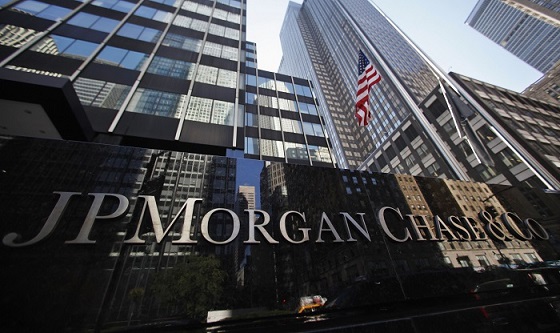Jamie Dimon, the chief executive of JPMorgan Chase, will face questioning over the bank’s relationship with notorious sex trafficker Jeffrey Epstein.
The bank is facing lawsuits seeking damages by women who claim that Epstein abused them and by the US Virgin Islands where Epstein had a home. In a separate case, JPMorgan is suing its former private banking chief Jes Staley over allegations that he concealed what he knew about Epstein and arguing that he should cover any losses it may incur in the lawsuits it is facing.
With all this ongoing, US District Judge Jed Rakoff on Tuesday ordered Dimon to set aside two days for depositions. The executive can be questioned by the plaintiffs’ lawyers for five hours and by Staley’s lawyer for two hours. The judge may allow more time if requested by any party.
Epstein was a long-term client of the bank from 2000 to 2013, with the bank retaining him as a customer after the felon pled guilty to a charge of prostitution in 2008. Court papers accuse JPMorgan of knowing that Epstein paid cash to underage girls from as early as 2006, and that it ignored several internal warnings to cut ties.
This all happened under the watch of Dimon, who joined JPMorgan in 2004 and became chief executive officer in December 2005. Dimon however has not been accused of wrongdoing, with most of the blame being pinned on Staley, who would go on to serve as chief exec at Barclays from 2015 to 2021. Staley has since said he regretted his closeness with Epstein, who died of an apparent suicide in a Manhattan jail while awaiting trial in August 2019.
In a statement, JP Morgan said: "The plaintiffs' counsel know our CEO has no relevant knowledge, but persist with this media stunt. A review of more than two decades of emails and other documents makes it clear that he had no involvement with Epstein or his accounts. He does not recall ever meeting, speaking or communicating with him."
A trial is set for 23 October.
Latest News
-
Gemini to cut quarter of workforce and exit UK, EU and Australia as crypto slump forces retrenchment
-
Bank ABC’s mobile-only ila bank migrates to core banking platform
-
Visa launches platform to accelerate small business growth in US
-
NatWest to expand Accelerator programme to 50,000 members in 2026
-
BBVA joins European stablecoin coalition
-
eToro partners with Amundi to launch equity portfolio with exposure to ‘megatrends’
Creating value together: Strategic partnerships in the age of GCCs
As Global Capability Centres reshape the financial services landscape, one question stands out: how do leading banks balance in-house innovation with strategic partnerships to drive real transformation?
Data trust in the AI era: Building customer confidence through responsible banking
In the second episode of FStech’s three-part video podcast series sponsored by HCLTech, Sudip Lahiri, Executive Vice President & Head of Financial Services for Europe & UKI at HCLTech examines the critical relationship between data trust, transparency, and responsible AI implementation in financial services.
Banking's GenAI evolution: Beyond the hype, building the future
In the first episode of a three-part video podcast series sponsored by HCLTech, Sudip Lahiri, Executive Vice President & Head of Financial Services for Europe & UKI at HCLTech explores how financial institutions can navigate the transformative potential of Generative AI while building lasting foundations for innovation.
Beyond compliance: Building unshakeable operational resilience in financial services
In today's rapidly evolving financial landscape, operational resilience has become a critical focus for institutions worldwide. As regulatory requirements grow more complex and cyber threats, particularly ransomware, become increasingly sophisticated, financial services providers must adapt and strengthen their defences. The intersection of compliance, technology, and security presents both challenges and opportunities.
© 2019 Perspective Publishing Privacy & Cookies













Recent Stories